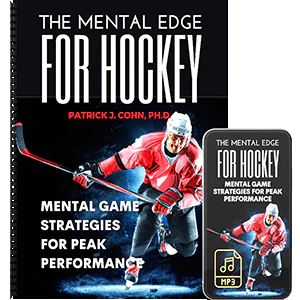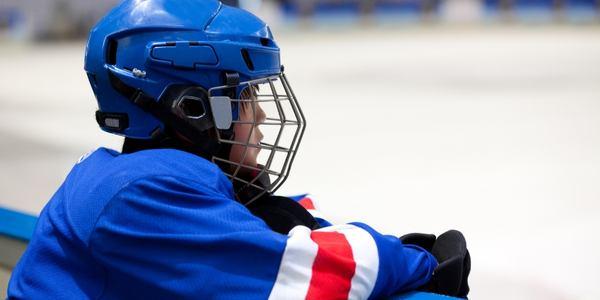Does Adversity Affect Your Attitude?
How often has something “wrong” or “bad” happened during a hockey season that devastated you?
Some hockey players encounter adversity, which changes their attitude and negatively affects their season.
Different degrees of adversity affect players in different ways. For example, being benched can motivate one player to prove himself and regain his role on the team. While another player may become demoralized, thinking the coach has lost faith in his abilities, and mentally give up.
Likewise, when players get injured, their attitude affects their perspective and actions.
For example, if players injure their ACL, without a doubt, they will initially be disappointed, angry, frustrated, or sad.
However, some players may focus on how unfair the injury is or how hard they worked in the off season only to “lose everything.” These players will continue to experience negative emotions.
Negative Emotions and Anxiety will Interfere with the Healing Process
This delays their eventual return to competition.
Negative emotions may cause some players to distance themselves from the team, feel isolated and experience more intense negative emotions.
Conversely, after the initial shock of the injury, some athletes may focus on rehab goals, strengthening their upper body or core, taking an inventory of skills to develop, or working on their mental game.
In this instance, players tend to recover quicker, maintain a sense of control, improve weaker components of their game, and become mentally stronger.
Your attitude determines whether or not you turn a potentially negative circumstance into something beneficial.
For instance, Frank Nazar was drafted by the Chicago Blackhawks 13th in the 2022 draft.
However, Nazar’s season was derailed by a lower-body injury that required surgery before the season began. It’s hard to imagine the range of emotions Nazar must have experienced, from the excitement of being drafted to the frustration and sadness of his delayed debut due to injury.
In addition, Nazar had to face a long and challenging rehab for the first time in his hockey career.
After almost ten months of rehab, Nazar successfully returned to action as a mentally and physically stronger player.
NAZAR: “I try to take the positive out of all the situations… If something bad happens, you got to look at the positive side of it no matter what, or else you’ll just be down. For me, watching the game and [watching] with the coaches a little bit, I see a little bit of their side of it… And the mentality part, that part of my game is gonna just get strengthened from this.”
Finding a positive out of an adverse situation is not always easy, but it is always beneficial.
After you experience adversity, permit yourself to be upset. It is normal to experience negative emotions briefly.
Afterward, brainstorm how you can turn the negative into a positive.
Write down on paper everything you can do to improve your situation. Post your list in a visible place. Review your list daily to maintain your motivation.
Related Articles on Hockey Mental Game:
- How Mantha Uses Adversity to Grow
- How to Be Positive During a Losing Streak
- Is Hockey Success About Talent or Mindset?
*Subscribe to The Sports Psychology Podcast on iTunes
*Subscribe to The Sports Psychology Podcast on Spotify
The Mental Edge for Hockey

The Mental Edge for Hockey teaches you proven and simple mental game strategies so you can overcome fear of failure, lack of confidence, slumps or poor composure, take your practice game to competition, and boost your confidence in hockey. You learn simple, actionable mental game strategies to help you perform at your peak!
I’ve worked with athletes for 30 plus years – and know the top challenges that undermine performance when you perform in games. Now you can tap into my expertise and experience in coaching hockey players on the mental game.
In this program, you’ll learn the TOP 10 mental training lessons for hockey players – the same strategies I teach one-on-one athletes I coach on the mental game. My clients pay thousands of dollars for personal coaching, but now you can have the same strategies to improve your mental game – at a fraction of the price.

Leave a Reply